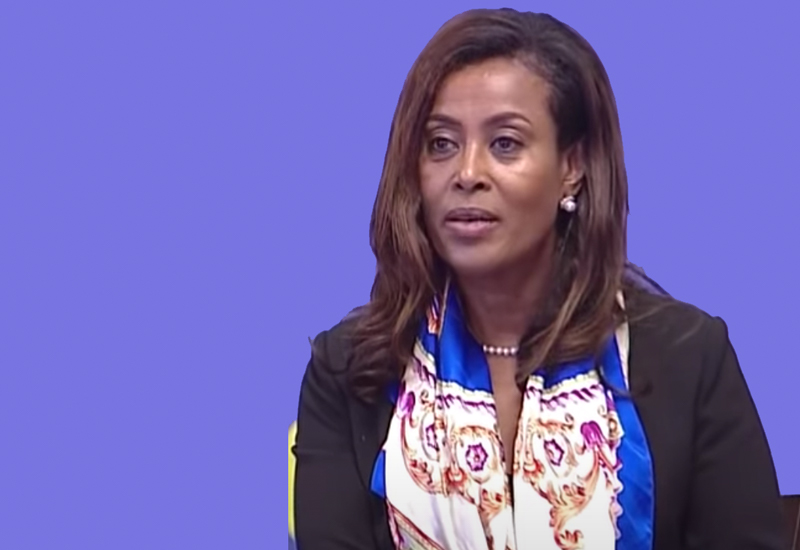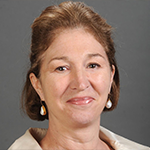
Fortune News | Jun 10,2020
Oct 4 , 2025
By Anne-Marie Slaughter
In his speech to the United Nations General Assembly (UNGA) last week, US President Donald Trump claimed to have "ended seven unendable wars," a definite exaggeration, though his Administration has helped make peace in several regional conflicts. Trump then excoriated the UN for its inaction.
"All they seem to do is write a really strongly worded letter, and then never follow that letter up," he said. "It's empty words, and empty words don't solve war."
It pains me to admit that he is largely right about the UN's current role in peace and security. As the war in Ukraine and the destruction of Gaza and the Gazans illustrate, the UN is impotent when the five permanent members of the Security Council are at odds. Russia and China veto any attempt to hold Russia accountable for its full-scale invasion of Ukraine, while the United States (US) blocks collective global action to protect the Palestinians and create lasting security for Israel and a nascent Palestine.
Trump did talk about the UN's "tremendous potential." But no one should be fooled. His foreign policy blatantly contravenes the letter and spirit of the UN Charter. He is an old-school realist who, like Russian President Vladimir Putin and Chinese President Xi Jinping, values national sovereignty and self-interest above all else. If he wants to invade or economically coerce other countries, or destroy boats in international waters for allegedly transporting illicit drugs, he will.
Amazingly, during Trump's speech, many world leaders laughed in the right places and applauded at the appropriate times, flattering the US President in public to improve their chances of making deals with him in private.
To be sure, the US has ignored the UN Charter before, engaging in proxy wars around the world throughout the Cold War and, most notably, invading Iraq in 2003. Nevertheless, an international security and economic order, with rules, institutions, and processes, existed to address global crises, and often did so successfully. For all the UN's defects, a return to 19th-century balance-of-power politics, with no restraints on the use of force, would be far worse.
So, what comes next?
On the sidelines of the UNGA, many business leaders and representatives of religious groups, think tanks, educational and scientific institutions, and philanthropies met to discuss versions of this question. Scores of meetings across town discussed ideas about what a new international order could look like.
One way to think of this messy and decentralised activity is to compare it to the various meetings that took place during World War II in the run-up to the 1945 San Francisco Conference, which established the UN. Today's world is far more complex. The number of UN member countries has almost quadrupled, and the field of non-state actors capable of effective global action has expanded dramatically. Still, the ferment remains important.
Long-time proponents of UN reform see two broad possibilities for change.
One is an international order organised and led by middle powers, for now, essentially any country that is neither a great power nor a small state. The second option, which could coexist with a middle-power order, is a flexible and informal arrangement created by intersecting coalitions of states and non-state actors focused on countering threats and delivering positive change at the sub-regional, regional, and global levels. Think of it as an armadillo's overlapping scales.
In the immediate term, as diplomats initiate follow-up action in the wake of the UNGA, I propose two sets of meetings among key countries to determine how the world can conduct the business of diplomacy without, or perhaps in parallel with, the US.
The first meetings should be between China, Japan, Germany, the United Kingdom (UK), France, Italy, Canada, and South Korea, which together provide nearly 50pc of the UN's general budget. The US has long been the UN's biggest funder. Its share of the 2025 general budget is assessed at 22pc, or around 820 million dollars. But the organisation will likely receive only a fraction of that amount, given Trump's executive order mandating a review of US funding and involvement in the UN.
These eight countries should thus consider convening the UNGA elsewhere for the next few years, which would reduce US diplomatic leverage and ensure that all delegates can attend the annual session. It would also underscore that, unlike Trump, who has made clear his disdain for "globalism," most of the world's governments still believe in rules that limit national sovereignty in the service of mounting a collective response to existential threats.
As the UN's second-largest funder, China could try to organise the UNGA in Beijing. But a more likely outcome would be to rotate the meeting among cities that host various UN and regional organisations, such as Geneva (the UN's European headquarters), Brussels (the European Union), Jakarta (the Association of Southeast Asian Nations), Addis Abeba (the African Union), Riyadh (the Gulf Cooperation Council), and Montevideo (Mercosur).
The leaders of the G20, minus China, Russia, and the US, should also meet. This group of middle powers (the UK, France, Germany, Italy, Canada, Japan, South Korea, Australia, Indonesia, India, Saudi Arabia, Turkey, South Africa, Brazil, Mexico, Argentina, the EU, and the AU) could take steps, as outlined by Daniel D. Bradlow and Robert H. Wade, to make the G20 more representative. The roughly 170 countries that are not G20 members may be disinclined to approve expanding its scope, but the group can increase its accountability to the global community.
As Stewart Patrick of the Carnegie Endowment for International Peace recently wrote, "the world that America made will end." Multilateral governance, however, will continue. Patrick describes a global and regional governance system comprising "thousands of intergovernmental organisations, treaties, consultative arrangements, regional and subregional organisations, multistakeholder groupings, international courts and tribunals, global standard-setting bodies, and transnational networks of corporations, NGOs, experts, and subnational authorities."
Whether, how, and under whose leadership all these actors can produce clear decisions and effective global action remains to be seen. But the game is on.
PUBLISHED ON
Oct 04,2025 [ VOL
26 , NO
1327]


Fortune News | Jun 10,2020

Commentaries | Jul 23,2022

Viewpoints | Dec 04,2020

Radar | Jun 14,2020

Editorial | Dec 21,2019

Viewpoints | May 17,2025

Radar | Jun 18,2022

Radar | Feb 19,2022

Editorial | Dec 07,2019

Commentaries | Jun 07,2025

Photo Gallery | 169481 Views | May 06,2019

Photo Gallery | 159727 Views | Apr 26,2019

Photo Gallery | 149267 Views | Oct 06,2021

My Opinion | 136192 Views | Aug 14,2021





Dec 22 , 2024 . By TIZITA SHEWAFERAW
Charged with transforming colossal state-owned enterprises into modern and competitiv...

Aug 18 , 2024 . By AKSAH ITALO
Although predictable Yonas Zerihun's job in the ride-hailing service is not immune to...

Jul 28 , 2024 . By TIZITA SHEWAFERAW
Unhabitual, perhaps too many, Samuel Gebreyohannes, 38, used to occasionally enjoy a couple of beers at breakfast. However, he recently swit...

Jul 13 , 2024 . By AKSAH ITALO
Investors who rely on tractors, trucks, and field vehicles for commuting, transporting commodities, and f...

Oct 4 , 2025
Eyob Tekalegn (PhD) had been in the Governor's chair for only weeks when, on Septembe...

Sep 27 , 2025
Four years into an experiment with “shock therapy” in education, the national moo...

Sep 20 , 2025
Getachew Reda's return to the national stage was always going to stir attention. Once...

Sep 13 , 2025
At its launch in Nairobi two years ago, the Africa Climate Summit was billed as the f...

Oct 5 , 2025 . By NAHOM AYELE
In Meqelle, a name long associated with industrial grit and regional pride is undergo...

Oct 5 , 2025 . By BEZAWIT HULUAGER
The federal government is set to roll out a new "motor vehicle circulation tax" in th...

Oct 5 , 2025 . By NAHOM AYELE
The Bank of Abyssinia is wrestling with the loss of a prime plot of land once leased...

Oct 5 , 2025 . By BEZAWIT HULUAGER
The Customs Commission has introduced new tariffs on a wide range of imported goods i...